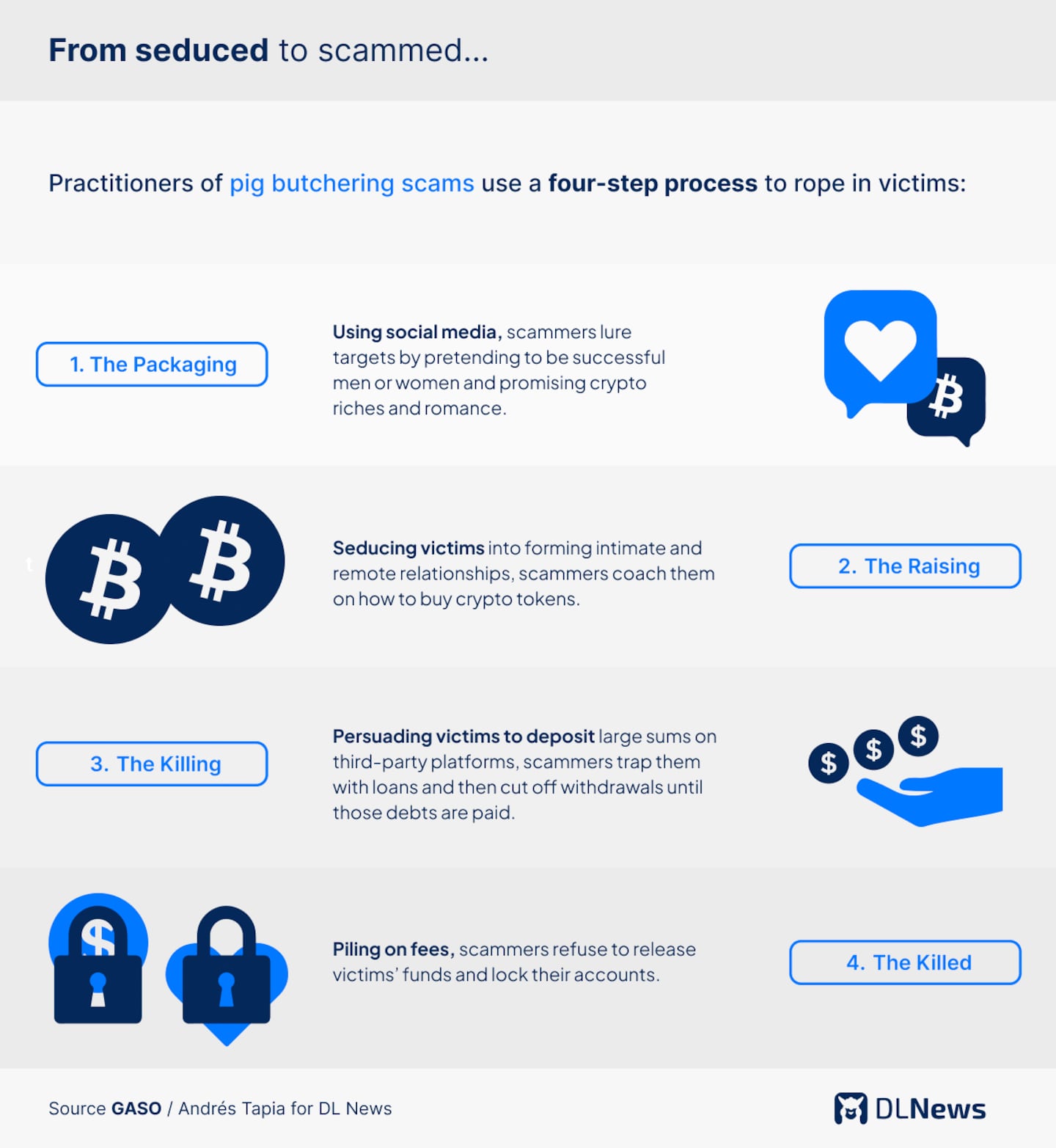- So-called pig butchering scams are on course to double in Hong Kong, police say.
- Crime syndicates are industrialising online scams to fleece unwitting victims using cryptocurrencies.
- One in three crimes in Hong Kong is now a grift of some type.
Residents of Hong Kong have not been spared from the wave of online romantic investing scams sweeping Southeast Asia.
The Hong Kong Police Force told DL News this week it had received 769 complaints between January and July, chalking up losses of HDK$407.8 million (USD$52 million) for victims.
Confidence trickery
The number of cases are on track to double this year compared to 2021, police data shows.
While information is not publicly available for 2022, The Standard reported that there were 642 reports of similar cases in 2021, triple the 181 recorded in 2020.
Earlier this month, DL News reported how organised crime syndicates in Southeast Asia are industrialising online scams that use cryptocurrencies to fleece victims seeking romantic relationships. These types of cons, called pig butchering, are perpetrated from compounds in Cambodia, Myanmar and other nations.
In Hong Kong, crimes involving deception and confidence trickery have skyrocketedover the last few years across the board.
Police fielded 28,000 reports of such crimes in 2022, which was quadruple the number in 2021. One in three of all crimes reported are some form of con, and most of those involve the internet.
Human rights and crime victim advocacy groups are pressing law enforcement authorities to bear down on online scams, many of which involve cryptocurrencies like USDT, Tether’s stablecoin.
Be vigilant
Earlier this month, the US Financial Crimes Enforcement Network (FinCEN) issued an alert urging institutions to be vigilant about activities involving cryptocurrencies linked to pig butchering scams.
Binance, a major cryptocurrency exchange, reported last month that such scams have doubled compared to the previous year, according to its internal data.

The FBI’s annual Internet Crime Report recorded a 183% rise in cryptocurrency investment fraud, which reached $2.6 billion in 2022 from the prior year.
But victims of scams face different hurdles compared to those who have been the victims of fraud.
While many countries will support victims who have had their credit card or identity stolen, those who willingly handed over money to scammers through a crypto investment platform usually aren’t eligible to get that money back from banks.
Earlier this week the chairman of the Singapore Workers’ Party — one of the three parties represented in the country’s parliament — Sylvia Lam urged the government to hold banks responsible for the losses of scam victims.
The Minister of State for Trade and Industry, Alvin Tan, said such measures would be neither “fair nor desirable”.
“Doing so can erode vigilance and personal responsibility and lull users into complacency,” he added.
Callan Quinn, DL News’ Hong Kong correspondent, covers the crypto industry in Asia. Have a tip? Contact the author at callan@dlnews.com.



